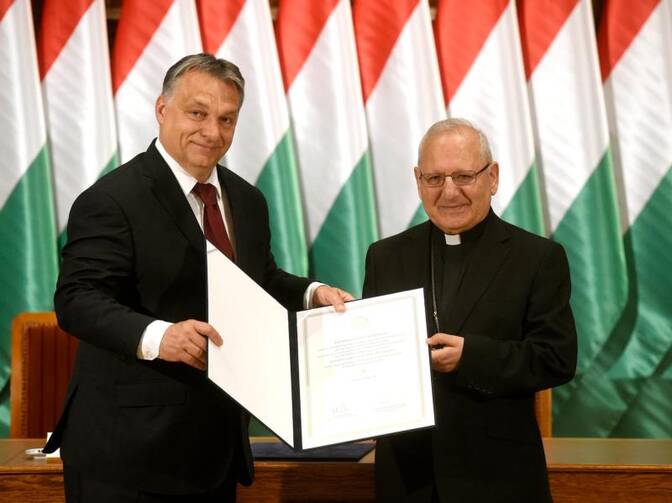VATICAN CITY (AP) — The head of Iraq's Chaldean Catholic Church complained on Tuesday that promised U.S. aid for religious minorities in Iraq hasn't materialized, issuing an unusual public rebuke of the United States on the same day Washington announced a new infusion of assistance.
Cardinal Louis Raphael I Sako spoke at a Vatican briefing as Mark Green, USAID administrator, was at the Vatican for talks and announced a near doubling of funding—to about $300 million since last year—and on-the-ground results.
"There are promises, but the reality is that there's been nothing up to now," Sako said, when asked about the U.S. aid. "Today, we need to help and encourage Christians to remain in place, help them to find work, repair their homes, give them a hope. Emptying these places is a mortal sin, truly."
"There are promises, but the reality is that there's been nothing up to now," Cardinal Louis Raphael I Sako said.
He praised Hungary by contrast, saying it had provided $5 million in direct assistance to repair Christian homes, schools and churches in Iraq and Syria rather than take refugees in.
Sako was asked, in a follow-up question, if he was referring to complaints about missing aid from U.S. Catholic charities or the U.S. government.
"I am speaking about the policy of America," he said. "Americans, they are very nice and very friendly as individuals, but the policy is wrong."
It wasn't immediately clear if he was referring to the U.S. policy overall in the region, but he suggested that the U.S. invasion of Iraq, which gave way to years of instability that facilitated the birth of the Islamic State group, was responsible for the exodus of Iraqi Christians from communities that have existed since the time of Jesus.
"We Christians of the Middle East, if we leave, we will have lost our identities, our tradition, our patrimony which is very, very rich," he said. "But America, up to now, hasn't done anything. But we hope."
Separately, Green was starting his visit to the Vatican, and the U.S. State Department said a new infusion of $178 million had been allocated to help religious minorities in Iraq.
Green has a previously scheduled meeting with Sako on Wednesday. Green expects to discuss the agency's work to help religious minorities in Iraq with Sako including ongoing projects with the Chaldean church and Sako's diocese, according to a USAID official. The official spoke on condition of anonymity as he was not authorized to discuss the meeting with the press.
Green said U.S. funds were being channeled through 36 local, 11 faith-based and 27 international organizations to help preserve Iraqi culture, prevent future atrocities and help with economic recovery. Specifically, the U.S. is working with the Catholic group Knights of Columbus to identify those in need.
In a statement, Green said one concrete example of U.S. funds at work was in the town of Bashiqa in Iraq's Ninewa Plains, where funds have helped repair homes and wells, financed medical units and increased security around schools to enable families to return.








